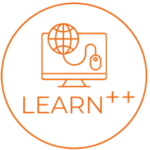What is project-based learning (PBL)?
What is project-based learning (PBL)?
Project-Based Learning (PBL) stands out as an innovative and dynamic educational strategy meticulously designed to cater to K–12 students. This approach uniquely tailors the learning experience to individual courses, offering a subject-specific methodology that captivates learners through hands-on, real-world applications. In stark contrast to traditional lecture-based instruction, PBL takes a deep dive into multifaceted projects seamlessly integrated with specific subjects, thereby cultivating critical thinking skills, fostering collaborative endeavours, and emphasising the practical application of acquired knowledge.
Tailoring to Individual Courses:
PBL acknowledges the diversity of subjects within the K–12 curriculum. It recognises that each subject has its nuances and applications. By tailoring projects to individual courses, PBL ensures that the learning experience is not only relevant but also optimised for the unique challenges and opportunities presented by each subject.
Subject-Specific Methodology:
Unlike generic teaching approaches, PBL employs a subject-specific methodology. For instance, the way mathematics is taught through PBL differs from how history is approached. This specificity allows educators to align projects with the distinctive requirements and learning objectives of each subject, maximising the impact of the learning experience.
Engagement Through Real-World Applications:
PBL thrives on the principle of learning by doing. By immersing students in real-world applications, the educational experience becomes not just theoretical but deeply experiential. This engagement with practical, real-world scenarios instils a sense of relevance and applicability, making the learning experience more meaningful for students.
Moving Beyond Conventional Lectures:
PBL is a departure from the traditional lecture-based model. Instead of passively receiving information through lectures, students actively participate in projects that demand their involvement, critical thinking, and problem-solving skills. This shift in approach transforms students from passive recipients to active contributors in their learning journey.
Multifaceted Projects:
The projects embedded in PBL are intentionally multifaceted. They are designed to encompass a range of skills and knowledge areas. For example, a science project may require not only scientific knowledge but also research, presentation, and collaboration skills. This multifaceted nature ensures the holistic development of various competencies.
Fostering “Critical Thinking”:
Critical thinking is a cornerstone of PBL. By presenting students with real-world problems to solve, PBL challenges them to think critically, analyse information, and arrive at well-reasoned conclusions. This skill is not only crucial for academic success but is also a key asset in navigating challenges in future careers.
Promoting Collaboration:
Collaboration is an essential skill in the professional world. PBL recognises this and intentionally incorporates collaborative elements into projects. Students learn to work as a team, share ideas, and appreciate diverse perspectives, mirroring the collaborative nature of many workplaces.
Practical Application of Knowledge:
PBL places a strong emphasis on the practical application of knowledge. It’s not just about memorising facts but about using that knowledge to solve real problems. This application-oriented approach ensures that students are not just academically proficient but also equipped to apply their knowledge in practical, real-world situations.
From grades 1 to 12, project-based learning can be a highly effective teaching method as it allows students to take ownership of their learning and apply their knowledge to real-life situations. Here are a few case studies that showcase the effectiveness of project-based learning in schools:
Case Study 1: Grade 4 Social Studies
In a Grade 4 “social studies” class, students were tasked with researching and creating a digital presentation on an endangered animal of their choice. The project required students to not only research the animal and its habitat but also to identify the factors contributing to its endangered status and propose solutions to protect the species. Students worked in groups to complete the project, which culminated in a classroom presentation. Through this project, students learned valuable research skills, how to work collaboratively, and the importance of conservation.
Case Study 2: Grade 8 Science
In a grade 8 science class, students were given a design challenge to create a solar-powered vehicle that could travel a distance of at least 10 metres. The project required students to research solar power and alternative energy sources, design and build their vehicle, and test it to ensure it met the design requirements. The project culminated in a competition where students raced their vehicles against each other. Through this project, students learned valuable skills in design thinking, problem-solving, and engineering.
Case Study 3: Grade 12 English
In a grade 12 English class, students were tasked with creating a multimedia project that showcased their understanding of a novel they had read. Students were given the freedom to choose the format of their project, whether it be a video, podcast, or website. The project required students to analyse the themes of the novel and demonstrate their understanding of the characters and plot. Through this project, students learned valuable skills in multimedia production, critical analysis, and creative expression.
Therefore, project-based learning is a highly effective teaching method that allows students to take ownership of their learning and apply their knowledge to real-world situations. Through project-based learning, students develop valuable skills in critical thinking, problem-solving, collaboration, and communication. By incorporating project-based learning into the curriculum from grades 1 to 12, educators can prepare students for success in their studies, careers, and adult lives.
Author
Dr R K Suresh
ceo@learnglobe.in
